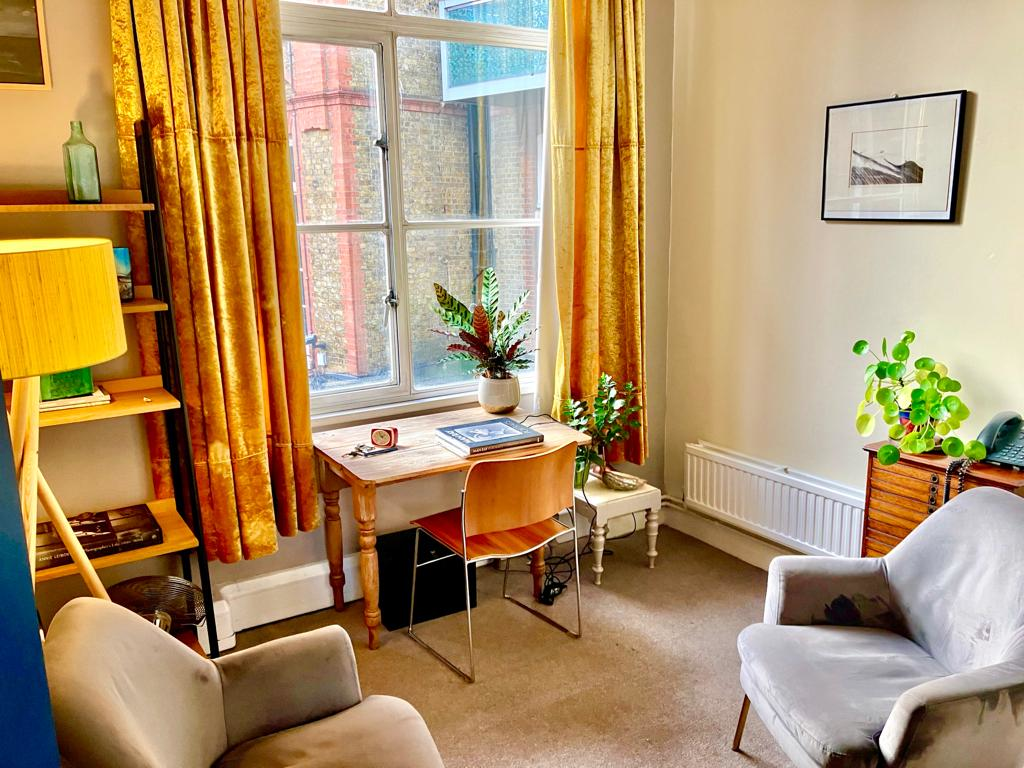‘It is not that something different is seen, but that one sees differently’ - Carl Jung
Starting Therapy
Therapy is partly an act of seeing. Seeing oneself and being seen. It takes courage to look back, to look at oneself and to be seen in the therapy space. It takes courage to ask what is wrong and to search for the answer. Often people come to this space in crisis, fearing that there is no way out and that nothing can help. It is an act of hope to ask for help in these times. Others come feeling that life has no meaning. Therapy allows for these feelings to be seen, to have space and care. It is only from this place that change happens.
If you decide to come to therapy, it is important to choose a therapist you can trust and that you find a therapy approach that feels right.
People coming to therapy ask: ‘does it work?’ Sometimes therapy can make us feel more sad, sometimes it can be difficult, but it also offers growth, insight, more connection to ourselves and to others and a deeper understanding. People also come because they want to change. We work on enabling effective and long-term change.
The Way I Work
I work as a psychodynamic psychotherapist/counsellor. This means the way I work is to address your present situation in the context of your early upbringing. Understanding the links between our past and our present struggles can be enormously liberating. We start to understand how upbringing and past experiences, profoundly impact on our emotional regulation, our sense of safety, our self-confidence, attitude towards our body, sexuality and our ability for trust people. Our past experiences also alter our perception of current events ( for example, if you have experienced domestic violence as a child, you may struggle with anger as an adult. It may be hard to deal with anger, to express anger or to know if someone else’s anger is okay or dangerous.
How long does it take?
One of the questions you may ask when starting therapy is ‘how long will it take?’ There is no absolute answer to this question. Time-limited therapy involves agreeing a fixed number of sessions although people often choose to return at a later time to re-remember the work they achieved. Ongoing therapy involves keeping a dialogue open, allowing a free space to reflect on how you are doing and on how you feel in the therapy space. There are real situations that impact on coming to therapy, such as money, illness, jobs, and children. Therapy is also hard at times and it can be scary to think about staying to face things. I offer a space where conversation is possible and we allow for an honest reflection of what is right for you.
Time-limited therapy
Time-limited therapy is about agreeing a set amount of sessions at the start of our work. You may be seeking a specific goal for therapy, such as improving your relationships, or you may need to find a therapy which is affordable, either financially or in terms of time. In which case time-limited therapy may be the best approach for you. I often work using a 12-session model of time-limited work, but this depends upon your circumstance.
Ongoing therapy
In ongoing therapy, we do not have a fixed amount of sessions at the start of our work. You may have complex issues to work through and so it is best to work together until it feels right for us to stop. Sometimes it is difficult to tell how much counselling you need and in this case, ongoing therapy is most suited for you.
Working with me
I am a highly experienced practitioner and have worked with many hundreds of people. I have experience of working within NHS settings (Kings College Hospital and currently South London and Maudsley NHS Foundation Trust). I offer an affirmative, open and supportive space. I challenge and question, whilst still holding a space for you to clearly define who you are and what you need. I am interested in each person finding and speaking from their authentic self.
